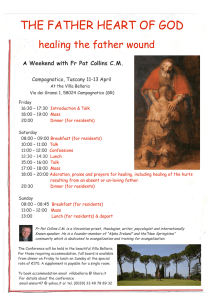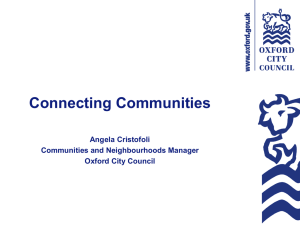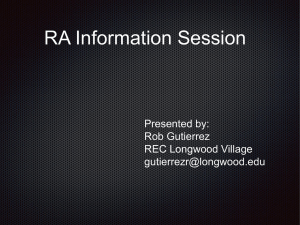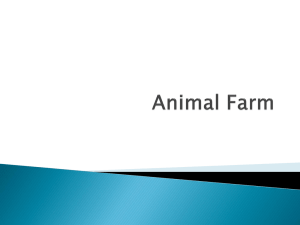Life in a Poorhouse - University of Maine
advertisement
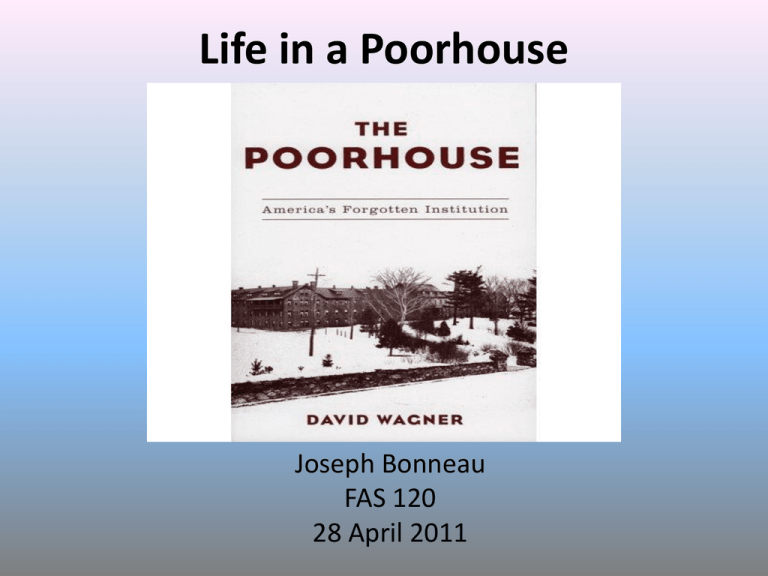
Life in a Poorhouse Joseph Bonneau FAS 120 28 April 2011 About David Wagner • Holds degrees from Columbia University and the University of Massachusetts • Started out as social worker in New York and Massachusetts • Professor of Social work and sociology at the University of Southern Maine • Author of 5 other published books What is a Poorhouse? • • • • • • • • Government run facility that supported the needs of the poor, homeless, and jobless Started out in big cities such as New York and Philadelphia, but eventually came into smaller communities such as Haverhill, MA and Lewiston, ME Form of Welfare Residents worked on the farm to make ends meat Worked as housekeepers as well Farms produced many goods and products Not the best living conditions; lots of sickness and mental health issues Image: Derry, NH poorhouse Poorhouse: Lewiston, ME • Former Location: Lisbon St. in Lewiston • Operated from the early 1900s until the mid 1960s • Longest running poorhouse in Maine • Ran by my Great Grandfather Antoine Landry • Majority of residents were French Candiens • Hit the heaviest during the Great Depression • Many outsiders did not want a poorhouse • Gave the community a bad “image” Daily Life in the Lewiston Poorhouse • Residents worked long hours or for as long as their health could allow them • Residents looked down upon by outsiders • Residents only interacted with others on the farm • Never really had contact with society outside of the farm • More residents piled in during cold winters Daily life (continued) • • • • • Mostly farm labor and housework Children living in the poorhouse were also put to work No one could survive without working No residents were lazy “code of conduct”: had to follow rules and regulations of poorhouse in order to stay • Faith and praying • Some incoming residents were turned away because of such a large number of residents, especially during the Depression My Grandmother • Gertrude Mynahan • French Canadian • Spent entire childhood living with her parents on the poor farm • Her and her family experienced lots of discrimination because of ethnicity • “dumb frenchman” “stupid frenchman” • Had a very difficult time finding work because of being French Canadian • “it could happen to anyone” Constructing Identity • • • • • • Working and living Influence of others living on the farm Memories Oral Tradition and stories Imaginary Place Poor farm no longer exists but through memories and stories we can picture it Conclusion • Poor farm shaped the lives of many residents • Huge status gap between residents living on the farm and members of the outside community • Residents struggled to make ends meat • Thoughts of suicide amongst some residents • Residents felt very fortunate to have the poorhouse

